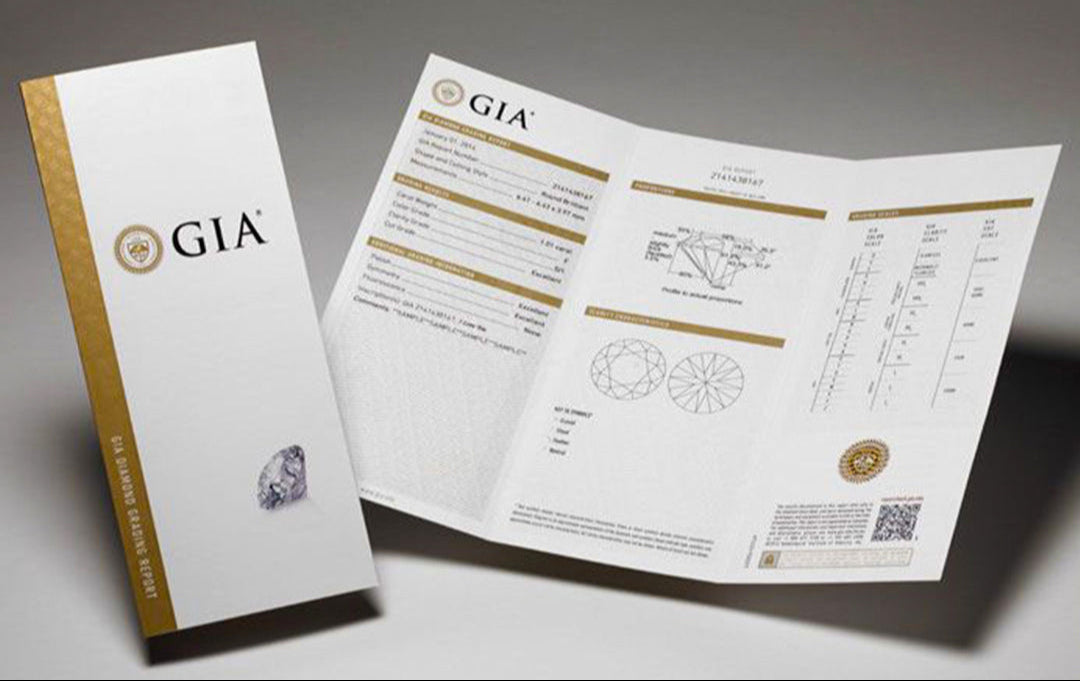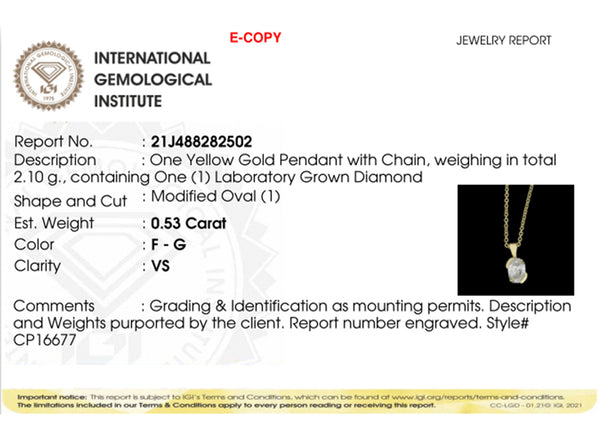When you're in the market for a diamond, be it for an ring, earring, necklace, or as an investment, choosing a certified stone is non-negotiable. Thanks to modern gemology, we’re no longer guessing in the dark. Certifications now act like your diamond’s passport - a detailed report that verifies exactly what you're getting. Certification provides an unbiased assessment of a diamond's quality. But not all diamond certificates are created equal.
Two of the most commonly seen names in the certification world are IGI (International Gemological Institute) and GIA (Gemological Institute of America). Though both play vital roles in the diamond industry, they differ significantly in terms of credibility, grading standards, and consumer perception.
So, what’s the real difference between IGI and GIA certification? Let’s break it down.
What Is a Diamond Certification?
Put simply, it’s a grading report issued by a gemological lab after a diamond has been closely examined under expert eyes and specialized tools.
This report outlines the 4C's - cut, colour, clarity, and carat weight, and may also include other info like fluorescence, exact measurements, and internal blemishes (called inclusions).
Basically, if you're buying a certified diamond, you're not just taking someone’s word for it, you’re diamond has been thoroughly vetted by trusted sources.
Meet the Labs: GIA vs IGI
GIA: The Old-School Standard
The Gemological Institute of America (GIA) is one of the most renowned, respected and trusted organizations for diamond grading. Founded in 1931, these are the folks who literally created the 4C's system everyone uses today to understand if their diamonds are exactly what they should be.
What sets GIA apart:
- Strict grading: They’re known for being extremely conservative and strict with grading diamonds. Every small detail is thoroughly checked. If a diamond is graded VS2 by GIA, other labs might have graded it VS1.
- Detailed analysis: Their reports go deep, with precise measurements and inclusion maps.
- Global trust: A GIA certificate is recognized (and respected) around the world.
- Covers Lab Grown too: Since 2019, they’ve started grading Lab Grown Diamond with the same strict standards.
With the growth of the market for Lab Grown Diamonds, GIA has started grading these as well. However, there are fewer GIA Certified Lab Grown Diamonds than Natural Diamonds.
IGI: The Lab Grown Leader
The International Gemological Institute (IGI) might not be quite as old-school as GIA, but it’s earned a solid reputation, especially when it comes to Lab Grown Diamonds Certification.
Founded in 1975, IGI is known for moving faster and being a little more accessible to both retailers and consumers.
Why do people choose IGI?
- Lab Grown expertise: They've been grading Lab created stones longer than GIA.
- Quick turnaround: Retailers like how fast IGI certifies stones, which keeps their inventory moving.
- User-friendly reports: IGI Certificates are detailed, but easier to read even if you're not a gem geek.
- Creation method included: For Lab Grown Diamonds, they’ll tell you how it was made, CVD or HPHT.
IGI is especially popular in India, Europe, and Asia, where Lab Grown Diamonds have a huge market.
GIA vs IGI: A Quick Comparison
Let’s stack them up side by side:
While GIA takes a stricter approach to grading diamonds to ensure that the best quality gems reach you, IGI is geared more toward grading Lab Grown Diamonds.
So, Which One Should You Go With?
Here’s the thing, both Labs are credible. But depending on your priorities, one might be a better fit than the other.
Final Thoughts
GIA’s reputation for precision and consistency makes it the top pick for Natural Stones. Meanwhile, IGI has carved out its own niche as the go-to for Lab Grown Diamonds, thanks to its speed and clarity.
The most important tip? Buy from a reputable jeweler. Even the best certificate means nothing if the seller isn’t trustworthy.
At the end of the day, diamonds are more than just sparkle. They’re an investment. Make sure yours comes with the right kind of paper.


















